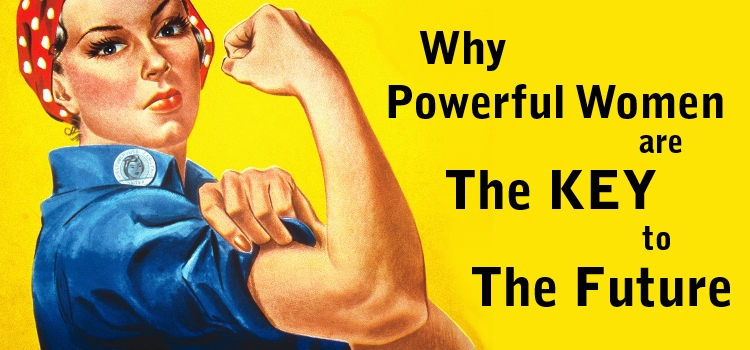
Throughout my life, I’ve heard countless people attempt to philosophize about God. And I’ve noticed a very similar thread through most of the arguments.
People say, “If there is a God, I’d walk right up to Him and say, ‘How dare you!? Children suffering? Natural disasters? Constant death all over the world?’ Either this God is evil or He is just awful at His job. Why would I want any part of that?”
The consistent sentiment is that God is either:
- Evil
- Uncaring
- or Incompetent
The core of this perspective is emotion.
People tend to equate what they feel intensely about with what is most important.
For example, in the context of intense physical feelings, if you break your leg, suddenly, nothing else in the world is as important as the pain you are feeling in that moment and the desire to make it stop.
Removed from those feelings of pain, if you had to stop and write down a list of what is most important to humanity, your broken leg wouldn’t be very high on the list. But in the moment, with all the intense feelings involved in your accident, nothing else seems nearly as important as getting your leg taken care of.
We were designed with the instincts required to survive, and this danger-pain-response system is part of that design.
But it works identically on an emotional level. When you see an image of a mutilated child or a video about sex trafficking around the world, there is often such an intense emotional response that you feel in the moment that these issues are the most important tragedies of our time.
You may not have thought twice about it yesterday, but in this moment, looking at those children, everything else seems unimportant.
Whether Christian or non-Christian, we feel intensely about something and equate that feeling with importance.
As a result, the common thread I hear when people philosophize about God is:
- This thing makes me emotional.
- God isn’t fixing it.
- God must be evil, uncaring, or incompetent.
Thousands of people will give this exact response, and it absolutely blows my mind.
When philosophizing about a limitless Being, how could someone possibly imagine that he/she gets to not only assign this Being a job, but also determine the criteria for success?
I mean, first of all, they are philosophizing about god, not debating theology. They are not limited to a Judeo-Christian view of God, and yet, they can’t imagine a limitless Being without automatically attempting to lock that Being into an arbitrarily defined role.
Even more illogical, that arbitrary role is based entirely on whatever the philosopher is most emotional about.
I mean, seriously, if there was a god who created an infinite universe, full of countless planets and species, why would that god care about the opinion of some individual from that one species on that one spec of a planet?
It’s frankly ludicrous.
And yet, I think our God is a very emotional being. For whatever reason, He has chosen to make us His sons and daughters, and thus, given us influence with Himself and that is decidedly illogical.
But here’s my point.
As God, He holds a 20/20 vantage point, and I think it’s safe to say He sees things more accurately than we do. I think God cares deeply for what makes us emotional – like death or suffering – but I think He also sees these things far differently than we do.
God lives in reality. He dictates reality. What we see and experience is a facade. We catch glimpses of what is real, but only glimpses. He sees our lives from true reality, and thus, He understands what is truly important.
I think the emotion we feel towards the negative things in life is a result of our being made in His image. Emotion so often equates to motivation, and it drives us to pursue what’s on His heart.
But let’s not be ignorant to the understanding that He sees what we cannot see. He understands what is real and what is important.
What makes us most emotional isn’t always what’s most important.











“For my thoughts are not your thoughts, neither are your ways my ways, declares the LORD.” (Isaiah 55.8)
This is a great reference. I can’t believe I didn’t include this in the article haha. Nice catch Lissandro!
Yes, I love this reference.
Incompetent, selfish Man brought evil into the world through his own sins.
Yes, but wait! There’s more!
Haha it doesn’t end there. That’s what the Good News is all about!
One cannot expect justice from an unquantifiable source. To reach justice you must first have hopes, decide on an object of faith and gain knowledge of it and your situation. Even a cursory inquiry reveals a vast difference in capability and intellect between me and God. (Exodus 4:11, Job 38,Psalm 19:1). I agree with Jacob – perspective doesn’t just matter, it is vital. Once you have a picture of who God is then you can form a picture of who you are in relation to Him. Then you realize that anything you receive is better than what you deserve (Romans 1:21, Ecclesiastes 7:20). This results in Thanksgiving – which is a form of justice – giving to all what they deserve. God deserve our gratitude. Confronted with suffering I remember the hope (based on the promises) that all things will ultimately glorify God (Isaiah 48:11, John11:4). Practically, it is an opportunity for me to conduct myself honorably (Romans 12:15, 1 Peter 2:12) just as Jesus did (John21:19, Philippians 2:5-11).
Great insights Andrew.
I’m curious, how would you go about framing the idea of “anything you receive is better than what you deserve” to a non-believer?
An excellent question.
Close your eyes. Imagine that you create something – music, painting, a house, a table, an idea – anything. Now imagine that your creation acts contrary to your wishes. The piano starts playing notes that aren’t in your composition. The green paint on the tree moves itself because it would rather be in the sky. The house locks all its doors because it wants to be alone. The table removes a leg because it doen’t like the number 4. How would you feel?
Confused. Incredulous. Angry. These feelings are totally justified. The are correct. They are right. Rightness, or justice, is proportional. The greater the stimuli the greater the response, both good and bad. You serve in the military for 20 years, you get a ribbon. You save 100 men’s lives while risking your own, you get the highest medal in the land. You push a kid on the school yard and they get a bruise you get a talking to. You rape and murder the same kid and you go to jail for life or pay with your own. Justice is proportional.
Look at creation. You are a speck. You are less than a speck. You amount to less than a blade of grass in comparison to the expanse of the universe. You cannot make the hairs of your head change color. You don’t even know how many there are. You cannot change the weather or the course of the stars and planets. But something can. Someone can.
It is in the context of this infinite disparity that your offense must be weighed. What offense? You may think it unfair, but simply existing is enough. You were born into a broken world, a world that has strayed from the ideal. It was made for you by your forefathers. You did not ask for it yet you exist in it and are tainted by it. And you have the nerve to add to that by saying, “I know what the music should sound like better than you, Mr. Composer!”
Lets make it personal. I deserve nothing. I am nothing. The only worth I have is that which the Creator gives me. The less I make of myself, the more I make of His love and sacrifice. I love Him because He first loved me and imparted value to me. No matter how hard I try, I will never come close to His standard of excellence. Yet He still loves me. No matter how long I live and continue to fall short I will continue to strive for His standard, because doing so would be a dishonor to the sacrifice and condescension He paid to me. And when I stand in front of the throne for judgement, if I am sent to the place of eternal fire where the worm does not die and there is weeping and gnashing of teeth, I will go knowing it is what I deserve.
In the second chapter of the Knight’s Guide (www.venulas.com/knight.html) we focus on five fundamental truths which all rational men must agree upon:
1. I exist
2. What I experience is not the ideal
3. The ideal exists
4. Some entity knows all variables of the ideal
5. Some entity has the power to fix the broken variables
As Christians we add a sixth truth, one unique only to our creed:
6. The entity which knows all variables and has the power to fix broken variables wants to.
God acts from his own desire. We exist because He wants us to. If He blinked we would cease to be. Confronted with this reality how could I be anything but grateful?
But there is so much suffering in the world! So what? Suffering is the constant of the human condition. Life is an endurance event, a test. He wants to see who’s going to go the distance. It was this way for Jesus. It is this way for me and you.
“If you do not stand firm in your faith, you will not stand at all”
Isaiah 7:9
Short answer:
Shut your mouth and know your role
Comments are closed.